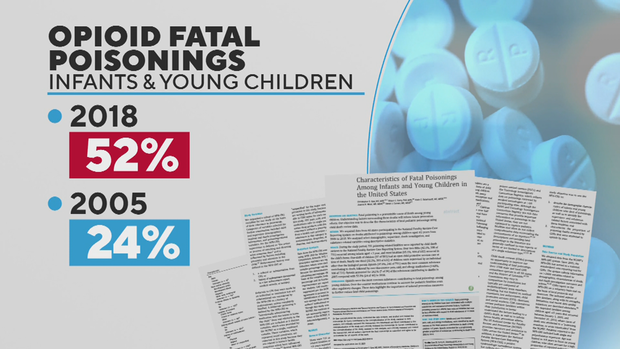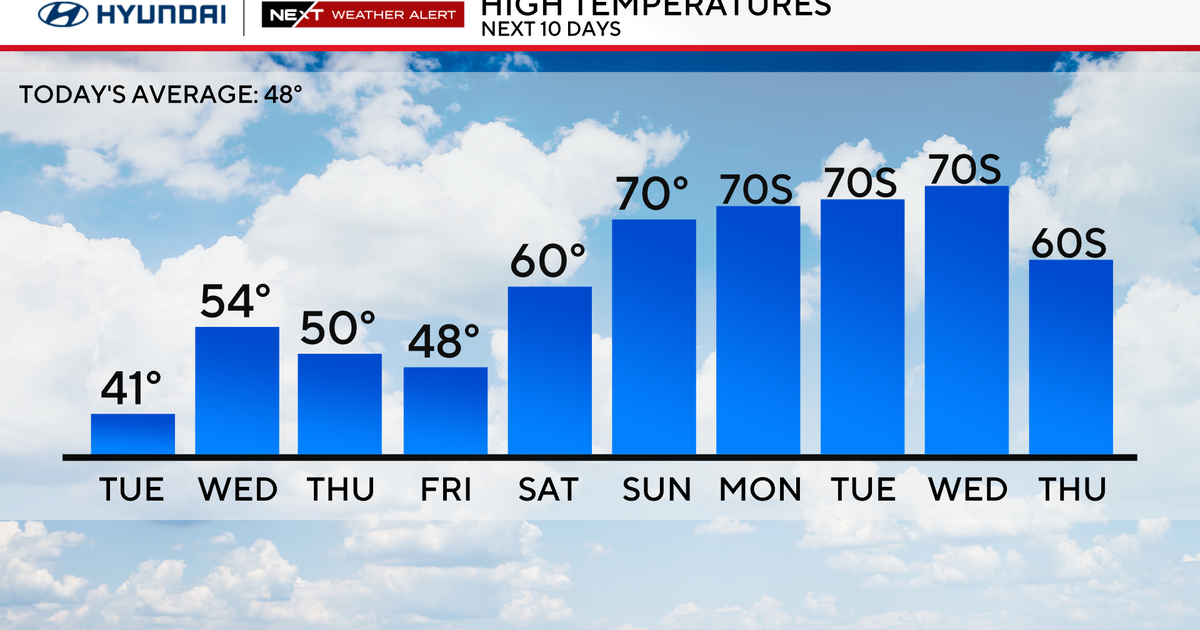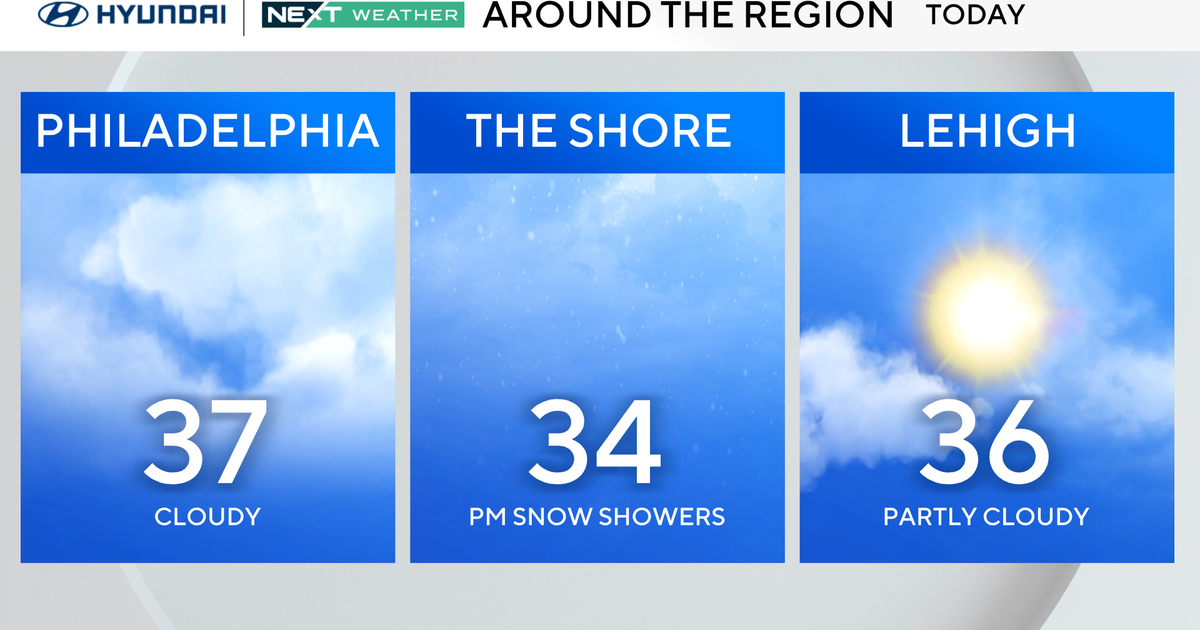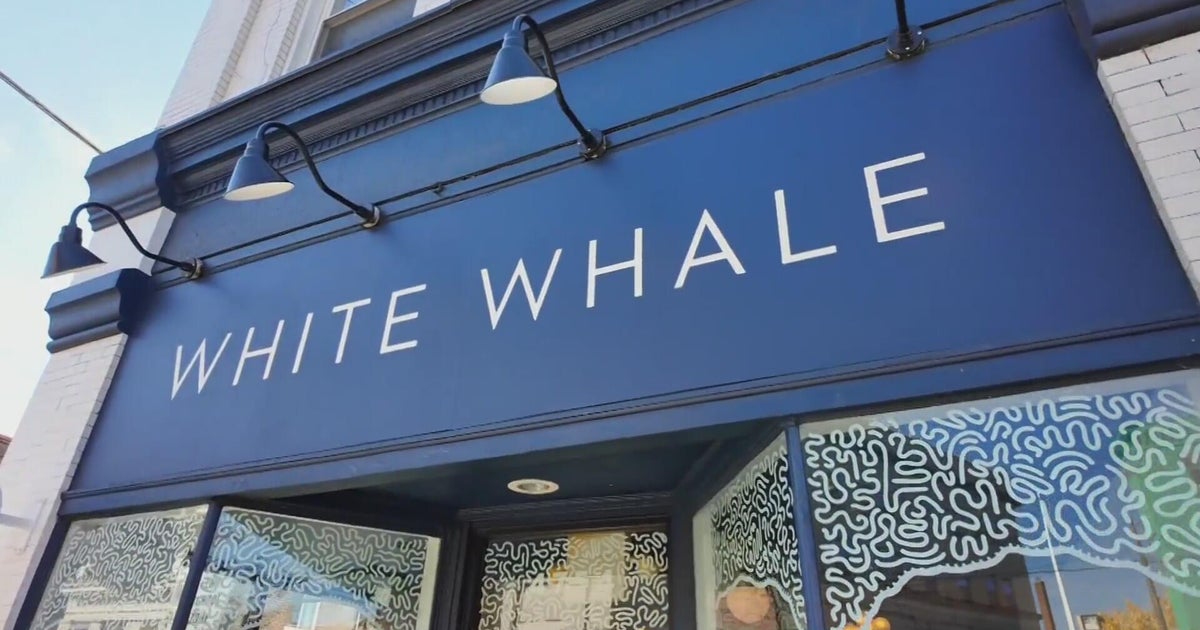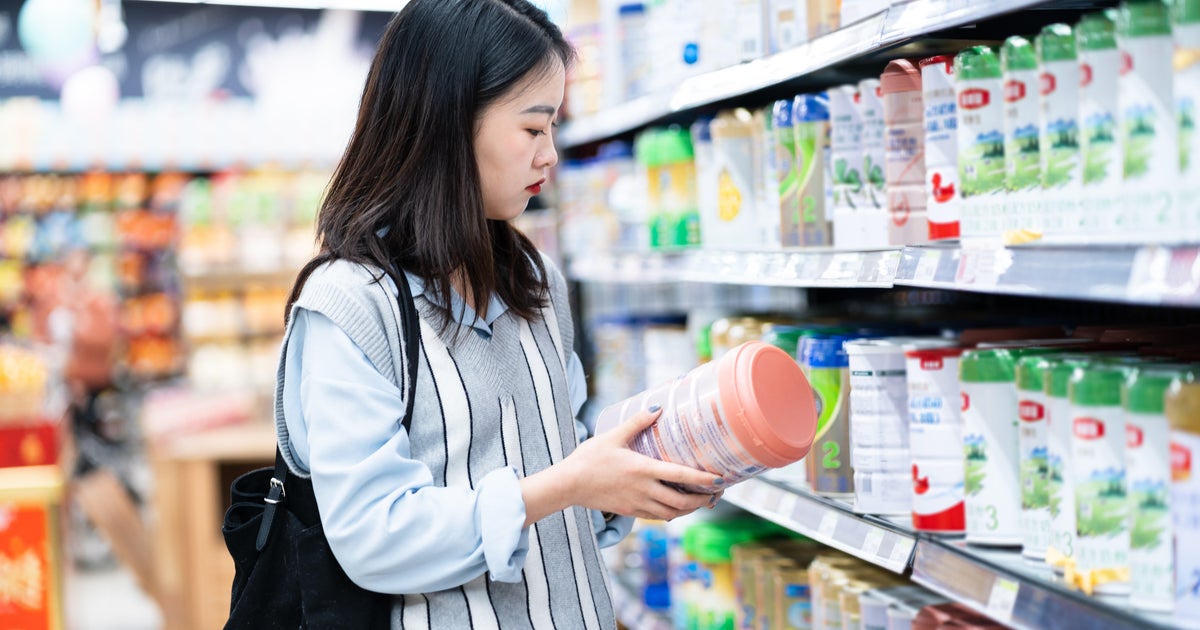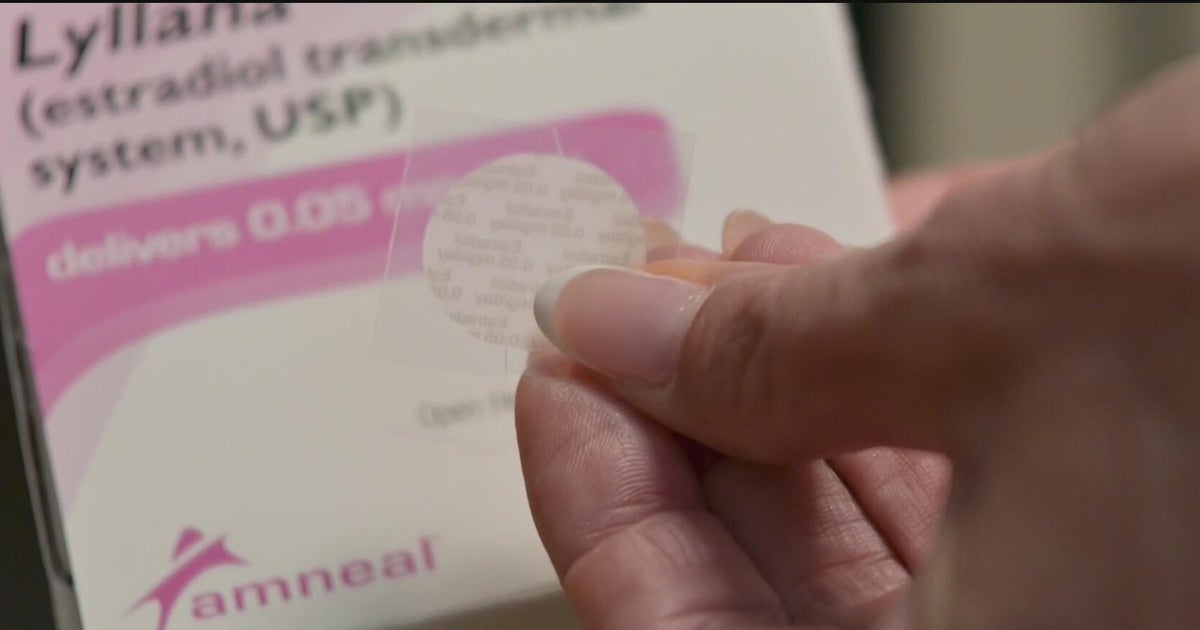Growing number of children dying from poisonings related to opioids: study
PHILADELPHIA (CBS) -- A growing number of young children are dying from poisonings related to opioids, according to new research from Children's Hospital of Philadelphia.
The nationwide research focused on children under the age of 5. Some were poisoned by over-the-counter pain and cold medicines, but the highest number of deaths came from opioids.
The nation's opioid epidemic is having deadly consequences for children.
A new study in the Journal of Pediatrics shows opioids are the most common substance leading to fatal poisonings in young children. In 2018, they accounted for 52% of deaths in children 5 and younger, a significant increase from 24% in 2005.
"By even small amounts of an opioid, just because kids are smaller and weigh less can have a much greater effect," Dr. Christopher Gaw, with CHOP, said. "It can change how they're able to breathe. They can change their mental status, and that can potentially be fatal."
Gaw authored the study and says within the past decade children have been exposed to new opioid sources like heroin, fentanyl and drug treatments like methadone and buprenorphine.
At the Poison Control Center at CHOP, nurses and pharmacists field more than 65,000 calls each year.
Other common substances, including over-the-counter pain, cold and allergy medications, are also leading to deadly poisonings.
The center is working with communities to help keep opioids and other drugs out of the reach of children in the first place.
"Supervision is helpful, but it's not the end all, be all, because kids are quick and poisonings can happen in a split second," Gaw said. "So what we recommend is that parents and families should focus on preparedness and prevention. They should keep medications and other toxic substances out of sight and out of mind, preferably behind a locked cabinet."
In fact, three-fifths of poisoning deaths happen in a child's home -- a wake-up call for parents and caregivers to keep their kids safe.
Researchers also recommend if you have opioids in the home, that you keep the medication naloxone in the house which can be lifesaving if a child has an opioid-related exposure.
